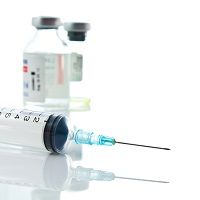Article
Second Study Confirms Flu Vaccine Does Not Cause Noteworthy Reaction in Egg Allergic Children
Author(s):
A second trial of intranasal flu vaccines in children with egg allergies has reached the same conclusion as the first: The trace amounts of egg protein do not trigger systemic reactions such as anaphylaxis.

A second trial of intranasal flu vaccines in children with egg allergies has reached the same conclusion as the first: The trace amounts of egg protein do not trigger systemic reactions such as anaphylaxis.
The new British study, which appears in the Journal of Allergy and Clinical Immunology, further undermines official guidelines that encourage caregivers with such patients to substitute intravenous alternatives for the more effective live attenuated influenza vaccine (LAIV).
“We sought to assess the safety of LAIV in children with egg allergy to provide data to inform an evidence-based consideration of a change to current guidelines,” wrote the study authors, who believe their results warrant changes.“These data have demonstrated a safety profile in terms of systemic allergic reactions to LAIV (supplied during the 2013-2014 influenza season) in children with egg allergy, including those with a prior history of anaphylaxis, similar to that previously reported for children without egg allergy.”
The study team administered 433 doses of vaccine to 282 children (median age, 4.9 years) with documented egg allergies, many of them quite severe. Indeed, 115 of the children (41%) had already suffered egg-induced anaphylaxis before taking part in the study. Physicians had also diagnosed 67% of the study cohort with asthma and recurrent wheezing and prescribed preventer therapy for 51% of them.
Nonetheless, those 433 doses of vaccine produced 0 systemic reactions (95% confidence interval [CI], 0%-1.3%).
Researchers did note mild and self-limiting symptoms that might have been an IgE-mediated allergic reaction in 8 children and minor lower respiratory tract symptoms such as wheezing in 26 children (9.4%; 95% CI for population, 6.2%-13.4%). Such symptoms may, or may not, have stemmed from the vaccine. None were serious enough to warrant any response beyond routine self-medication.
Overall, the observed incidence of possible adverse effects among the children with egg allergies was similar to those in an American trial that was published late last yearin the Journal of Allergy and Clinical Immunology: In Practice.
That study tracked the effects of LAIV on both 55 children with no history of egg allergy and 68 children (median age, 6.5 years) who had already suffered allergic reactions within 1 hour of egg ingestion and tested positive for specific IgE antibody to egg protein.
All of the patients received a normal dose of LAIV and remained under observation for the next hour. No patient from either group exhibited any sign of reaction during that period. When researchers followed up by telephone 24 hours later, they found again found no sign of any allergic reactions.
The new studies are the first performed with intranasal vaccine on children with egg allergies but are really just the latest in a long line of trials that demonstrate the safety of vaccines with trace amounts of egg protein in patients with egg allergies. The older studies focused on vaccines administered via injection, often to adult patients, but they all reached the same conclusion.
Indeed, according to a recent research review that was also published in the Journal of Allergy and Clinical Immunology: In Practice, no study has ever found any reason to use egg-free vaccines on patients with egg allergies.
The widespread belief that standard vaccines are dangerous is based on “common sense” alone and has proved remarkably resilient to contrary evidence from trials.





